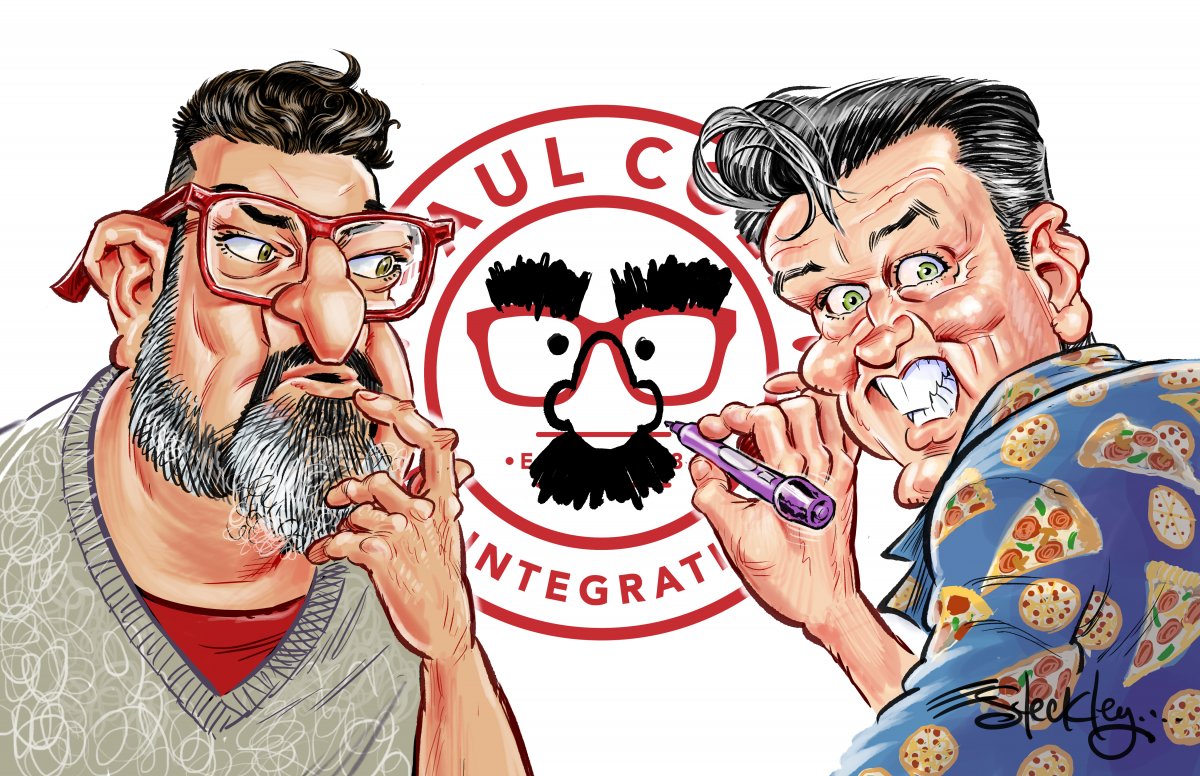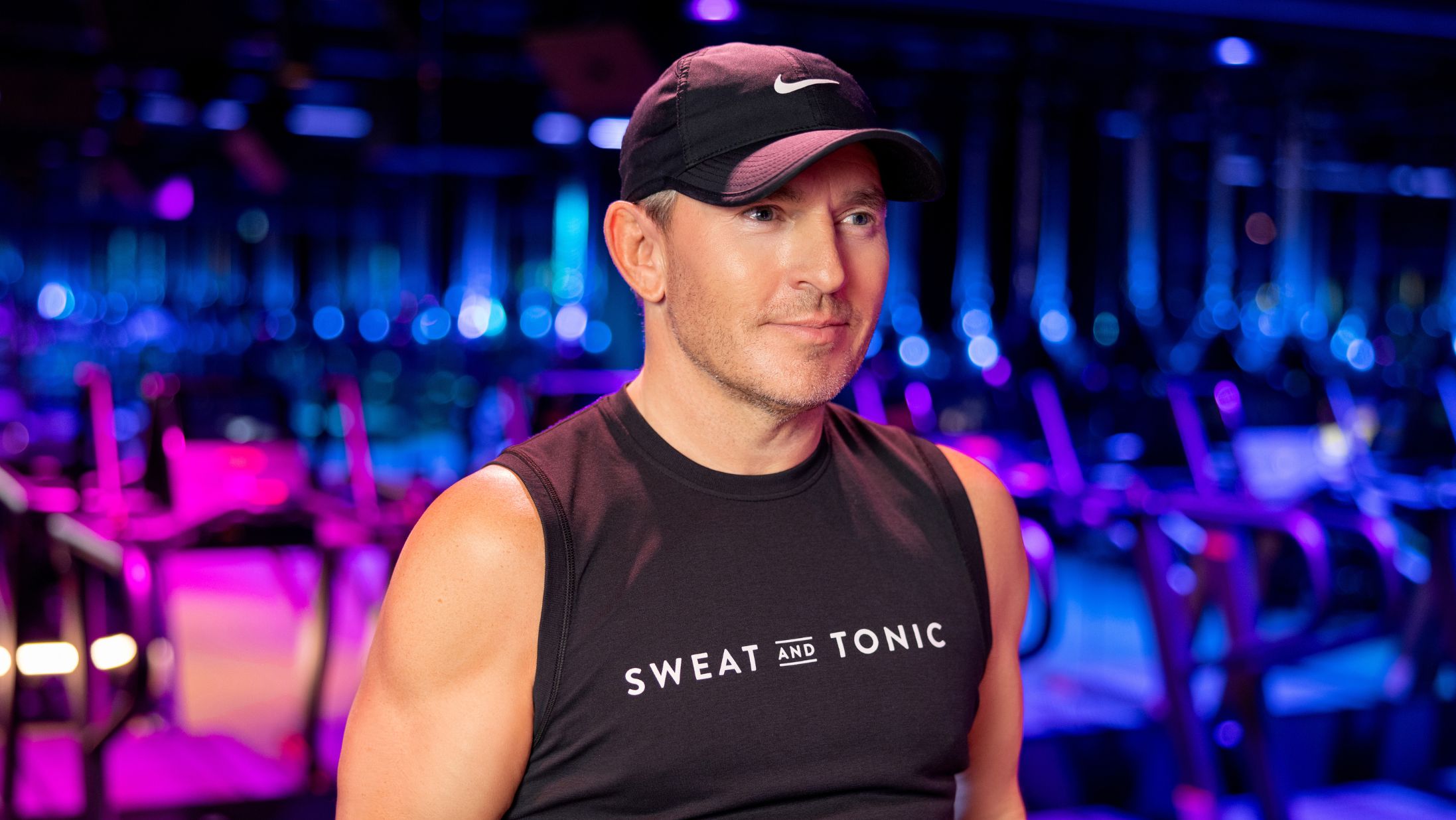[vc_row][vc_column][vc_column_text]As the e-commerce industry continues to grow, so do the number of things that you can buy online: cars, electronics, bacon scented soap. But despite the seemingly endless opportunities for online sales, one Canadian industry remains stuck in the past: insurance. Specifically, small business insurance.
That’s why Danish Yusuf founded Zensurance.
Created to bring the insurance buying process into the 21st century, the Canada-wide online insurance brokerage uses algorithm-based technology to help business owners find the best coverage without ever needing to pick up the phone.
“In the UK—which is probably the most advanced insurance market in the world—if you buy your insurance policy through a human, it’s like buying your plane ticket from a live travel agent here,” said Yusuf. “Canada is so far from that.”
During his time as a consultant at McKinsey & Company that Yusuf realized the gap in the market for something like Zensurance, so he left his job and embarked on an entrepreneurial journey.
Now, five years and 115 employees later, his bet on himself is paying off. Since its inception, Zensurance has helped over 100,000 Canadian business-owners on their insurance buying journey.
For this week’s Entrepreneur of the Week spotlight, Bay Street bull spoke with Danish Yusuf, Co-Founder and CEO of Zensurance, about the future of buying insurance, supporting small business owners, and why, sometimes, rejection is a good thing.[/vc_column_text][vc_text_separator title=”Q&A” color=”custom” style=”dashed” border_width=”3″ accent_color=”#22d8c3″][vc_column_text]What were your previous jobs before Zensurance?
I was a software engineer by training. I studied at the University of Toronto and then I worked at IBM for a couple of years. I was doing e-commerce and trading and I spent a couple of years there before I felt that I wanted to do something different. Then I moved into management consulting at McKinsey & Company. I spent seven years there, not including two years that I went to and did my MBA at Harvard. A lot of my clients at McKinsey were in financial services and my last few years were insurance exclusively. It was at that time that I saw the opportunity and thought, “Why is no one tackling this? It’s the highest potential for profits and it’s the least advanced.” And that was my trigger to say, “You know what, as hard as it is to leave a good job, if I don’t do this now, I never will.”
A lot of my friends from business school are now running multi-billion dollar companies in just 10 years. So, they were still in their early days [when I started Zensurance]. When I looked at the friends that did well, I said, “Hey, I want to give it a shot.” And when I looked at the hundreds that failed, I said, “I want that learning too.” The success percentage is really small, but there’s so much to be learned. I talked to lots of my friends that didn’t do well and they all said, “We’re so glad that we tried it because of the amount we learned.” And so that was what was my trigger to give it a shot.
On the Zensurance website, it says, “We believe the current process of buying and managing business insurance is due for a refresh.” How is Zensurance making that refresh possible?
What we want Zensurance to be, and what we’re building, is a transparent, intuitive way to protect the hard work of small business owners. We want people to be comfortable and be able to use it at the time and the manner of their choosing—more than half of our interactions are after business hours. So, we’re empowering business owners to use Zensurance whenever they want to.
There’s also a lot of conflict of interest in the insurance world that is pervasive across all financial services in general. Insurance agents are paid on a commission basis, based on the size of the policy. And I’m not saying anyone mistreats this, but there’s a natural tendency to want your customer to have a larger policy because your payout is more. When you get to that small policy, and it’s a couple of hundred dollars, the actual payout to the individual salesperson might be $30. So, it’s not worth it for them to spend time dealing with the customer. The same is true in banking and investments—the little guy generally gets ignored. Our system has been built purely focused on “the little guy,” and our technology has all of the intelligence that’s needed to provide that same level of service and respect that a small business owner deserves.
In terms of turning the traditional insurance process into an AI format and making it what you have, what was that process like to make sure that you cover all of the necessary grounds and you can provide the best service?
Zensurance is a hybrid model. We have machines that are really smart and constantly learning, but they’re overseen by people. Garry Kasparov said the best chess player won’t be a Grand Master or Deep Blue, it’ll be the combination of the two. We believe the same in insurance: you want the smartest possible machine facilitated by a very well-equipped person. So, we analyze absolutely everything, from where you came from, where you were before you came to our website and how long you spent going back and forth. Then, everything is used to equip the salesperson on our side if they need to intercede, or if the customer wants to speak to a human, Zensurance has all of that intelligence available to then help the customer, but the customer can do the whole thing by themselves as well.
And when building this hybrid model, were there any big hurdles that you had to overcome to bring Zensurance to life?
Many, many challenges. Frankly, if I knew how hard it would be, I may not have done this [laughs]. The main challenge was, why can’t insurance be bought online? You can do pretty much everything else online, but insurance, in Canada in particular, just hasn’t got there.
In many other countries, it’s very commonplace. In fact, in the UK—which is probably the most advanced insurance market in the world—if you buy your insurance policy through a human, it’s like buying your plane ticket from a live travel agent here. Canada is so far from that.
Convincing both insurance companies and consumers that this is a better way of doing business continues to be the biggest challenge. We work with 50 insurance providers of various forms, and many of them still are not sold on the online model. So, it’s a constant convincing that this is the right partnership for them in the long term.
When it comes to convincing people, in your own words, why is it better to do it this way?
There are a few good reasons why I think this will be the model of the future. First is what I mentioned earlier: When it comes to smaller policies, there just isn’t enough money in it for humans to spend the amount of time with the customer to provide the advice and the service. What ends up happening is the price of that policy is artificially high because of the amount of manual labor involved in selling it. The customer is not well-served if they’re paying all of that extra money, but not getting the advice that they should be.
Second, imagine you’re brand new into insurance and you’re the salesperson—that is the typical profile of the person that’s selling smaller policies. You don’t have 10 years of experience, nor do you, as a human, have that capability to know exactly what questions you need to ask for every type of business out there. What you need to know about a coffee shop is different from a painter and it’s different from a photographer. When you put that logic into a machine and you ask every question in the right way, every single time, it’s specifically tailored for that business. So, I believe the underwriting process is not only more efficient but more effective if it’s done by a machine with some human oversight. As a result, you get better profitability on the back end because you’re building a better-underwritten book of business.
The third is that customers expect this. You can go on Amazon and buy anything you want to, you can buy a Tesla online, you do everything online—especially these days [during the pandemic]. If the insurance industry does not facilitate that, customers are going to be sorely disappointed. Normally there’s the saying, “If you build it, they will come.” I think in insurance, it will be, “If you don’t build it, they will leave.” If we don’t build this, something like an Apple or an Amazon or Google will come in and do it for us, and then the incumbents lose out. That’s why I think the incumbents really should be looking at this seriously.
And obviously, 2020 had huge effects on small businesses, which is the main target of your customers. Was there any overall trend in terms of Zensurance’s customers? What was the pandemic’s effect on your business?
First off, I think it’s just a really tough time for everybody, including small business owners. Even though technologically, we were able to work remotely, the mental health side of it for employees was really tough. We sent equipment, desks, monitors. We set up a phone network for employees to get mental health counseling, free of charge. There was a lot we had to do and I think that was probably a common theme across all of our customers as well. It was a very challenging time from a mental health perspective.
From our business side, it was slow for the first month to six weeks with a lot of uncertainty. Nobody knew what was happening and there were all kinds of speculation. We did take an initial dip, but then things came back much stronger than we ever imagined and stronger than they ever were before—very much like any other e-commerce business. We saw a flood of demand. In fact, half of the company was hired during the COVID-19 lockdown. We are at about 115 people as of today, versus something like 45 at the beginning of last year. So, that’s just a testament to the amount of demand.
There was a friend of mine that recently came to me and said, “I went to get my insurance elsewhere and all they did was send me a 15 page PDF to fill in and they didn’t tell me anything else.” Whereas on Zensurance’s website, you answer a handful of questions online, and there’s a chance to see a price. You may have to talk to a person because we need to do a little bit more digging, but you can have your policy within hours; typically, it could take weeks. I think that ease of doing business and people’s comfort level with transacting online has been really good for us on that front.
Since you’re utilizing technology for Zensurance, how are you ensuring that its algorithms are on top of the changes that might happen in the tech sphere?
We think of ourselves as a tech company that happens to be in insurance. That was a line from Tony Hsieh at Zappos, “They just happened to be selling shoes,” and I really believe that. So, it’s very much a learning mindset. If we’re not constantly doing things better, we’re falling behind. We have this mantra internally, “Strong opinions, loosely held.” We expect everybody at the front lines to bring forth whatever their learnings are. It’s not just nice to have, it’s a requirement. If I say something and they disagree with it, we want them to disagree and tell me that I’m wrong. And so, that’s the mentality we have across the company, just to make sure we’re always improving and doing things better than we were the last day.
With your rapid growth throughout the pandemic, did you have any learnings in terms of that onboarding a lot of people remotely was like?
That was a really, really big challenge. Like I mentioned, technologically, we were set up because everything’s through a laptop. But, all of our training and learning and that mentorship was in person, like every other company. It just so happened that we had hired a full-time trainer at the beginning of last year. So she very quickly changed all of her learning modules to be virtual. So when somebody joins, they get three days of full-time training, onboarding, et cetera. And then they have a learning and development agenda where calendars are pre-set for you to have different meetings with different people in certain sales roles. It’s a five-week bootcamp that they go through full time.
Then, there’s a pretty rigorous process after that for them to be virtually sitting with different people so that they get as close to an in-person experience as possible. I don’t think it’ll ever be the same, but we put meetings all over their calendar to make sure they’re interacting with people. Then, we also did a variety of other things like a regular fitness class online, a Zen your mind session, where people that are having any kind of challenge come together and confidentially talk amongst themselves, a full company meeting every Friday. One of our employees was a DJ, so he did a jam session over lunch. So, we’ve done many of those things to try and replicate that camaraderie that we’re missing. I don’t think it’ll ever be the same, but we’re getting pretty close.
From a co-founder’s standpoint, what has it been like seeing Zensurance grow to what it is today?
I still can’t believe how far we’ve come. Lots of things broke our way, many things didn’t break our way, and there were tough times as well. I still remember when we were three or four people sitting around our desks and we would just talk amongst ourselves. As you get up to 120 people, and unfortunately, you have to put in a process. You have to have departments and divisions, but I hate having a process. I forget who said this, but the sign of a mature company is an unhealthy addiction to process, and that sort of limits the pace at which you can innovate. So it’s just balancing how much we need to do in terms of process versus, “Hey, if it makes sense, just go do it.”
Also, I never expected how challenging this would be, in every aspect. For instance, I never thought we’d have HR issues come up, market issues come up, or that we’d have incumbents bash us online and make all kinds of noise and complain to our insurance partners about what we’re doing (because every dollar we write, is a dollar less that they write). But overall, it’s been such an amazing experience thus far, and there’s so much more to be done.
And with so much more to be done, what do you hope for the future of Zensurance?
There are aspects around automation and AI, where more needs to be done for us to be able to serve more types of businesses. Then we can inch up the value chain to maybe do not just the micro, but the next size of businesses. We also want to make the advice more interactive; ultimately that’s the big value of a licensed broker. So we want to invest more in that live advice functionality, where customers can say, “You know what, I could go to a human, but this hybrid model at Zensurance is faster. There’s more advice. It’s easier, it’s cheaper, and in all respects, there’s no reason to go anywhere else.”
So that’s my vision: a customer will say Zensurance is better in all respects.
Was there anything that we haven’t spoken about that you’d like to touch on?
One thing always comes up when entrepreneurs come and talk to me and ask me to share one important learning: It’s this concept of knowing that people will laugh at you. People will reject you. And that’s a really good sign. Ironically, that rejection is really good.
If you have an idea, for it to be a big successful endeavor, not only do you have to be right in whatever your hypothesis is, others have to believe that you’re wrong—if everyone believes you’re right, it would have already been done.
So, if you get a lot of rejection and a lot of people are laughing at you, you may be on to something. Of course, there’s still the risk that you may be wrong but take it [rejection] as a good sign.
Also, luck plays a huge role in whatever you’re going to end up with. It’s not “all skill.” Nobody can say that. Luck plays a big part, but it is your grit that allows you to be around long enough for you to get the benefits of luck. So stay at it and take the rejection in good stride. Some days you might think, “Why did I quit my job? I can’t believe this is what’s happening to me,” but that’s what I tell entrepreneurs when they come to me: just stick it out.[/vc_column_text][vc_separator color=”custom” border_width=”2″ accent_color=”#22d8c3″][/vc_column][/vc_row]
[yikes-mailchimp form=”1″ title=”1″ submit=”SUBSCRIBE”]













